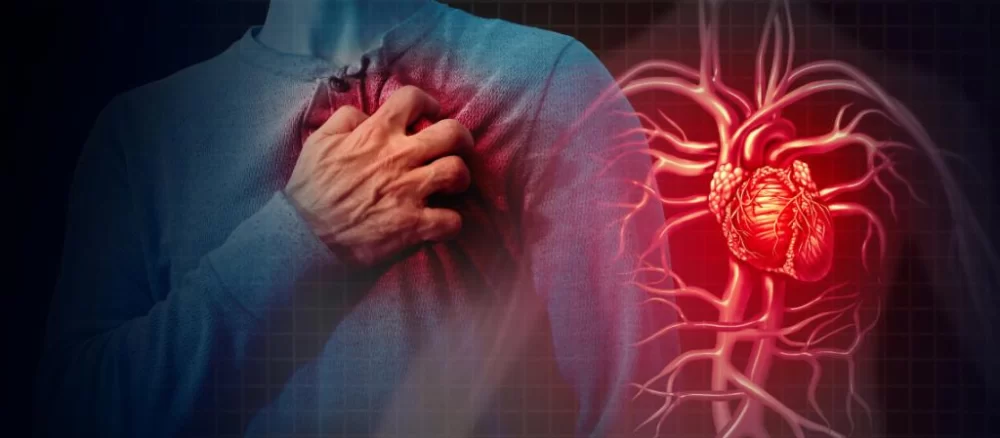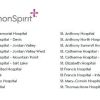How to Recognize the Symptoms of a Heart Attack in Women
- 1. Unique Symptoms of Heart Attacks in Women
- 2. Understanding the Risk Factors for Women
- 3. Real-Life Experiences: Understanding Women's Heart Health
- 4. How to Prevent Heart Disease in Women
- 5. What to Do If You Experience Heart Attack Symptoms
- 6. Boosting Your Heart Health with Trusted Products
1. Unique Symptoms of Heart Attacks in Women
Heart attacks in women can look different from those in men. While chest pain is a common symptom for both genders, women may experience more subtle signs that are often overlooked or mistaken for other issues. These include nausea, dizziness, shortness of breath, fatigue, and pain in the back, jaw, or stomach. These symptoms may appear suddenly or build gradually over time, making it harder for women to recognize a heart attack in its early stages.
Some women also experience extreme discomfort, which can feel like indigestion or anxiety, especially in the days leading up to the event. It's crucial to understand that heart disease manifests differently for women, and recognizing these unique signs could save a life.
2. Understanding the Risk Factors for Women
Several factors increase the risk of heart disease in women, including high blood pressure, high cholesterol, smoking, and diabetes. Additionally, women are at a higher risk if they have a family history of heart disease, especially a mother or sister who had a heart attack at an early age. Hormonal changes due to menopause also contribute to a higher risk for heart disease. These changes can lead to the thickening of arterial walls and increased cholesterol levels.
Pregnancy-related conditions such as gestational diabetes and preeclampsia can also affect heart health. Understanding these risks and monitoring them regularly can help women take proactive steps toward maintaining a healthy heart.
3. Real-Life Experiences: Understanding Women's Heart Health
Consider the case of Mary, a 56-year-old woman who noticed persistent fatigue and indigestion-like symptoms over the course of several weeks. Despite feeling unwell, she dismissed her symptoms as stress-related. However, one evening, she experienced a sharp pain in her chest, followed by shortness of breath. Her family rushed her to the hospital, where she was diagnosed with a heart attack. Mary's case highlights the importance of recognizing atypical symptoms in women and seeking medical attention when in doubt.
Similarly, Sarah, a 62-year-old woman with a family history of heart disease, felt dizzy and had trouble catching her breath during her regular morning walk. Though the symptoms were subtle, her doctor recommended further testing, leading to the discovery of a blocked artery. Sarah's story emphasizes the significance of preventive care and regular check-ups, especially if you have risk factors or a family history of heart disease.
4. How to Prevent Heart Disease in Women
Preventing heart disease in women starts with healthy lifestyle choices. A balanced diet rich in fruits, vegetables, and whole grains, combined with regular exercise, can significantly lower the risk of heart disease. Avoiding smoking, managing stress, and staying on top of medical conditions like diabetes and high blood pressure also play a pivotal role in heart disease prevention.
Women should also be mindful of their cholesterol and blood pressure levels and take prescribed medications as necessary to maintain heart health. Regular screenings, especially if you're at high risk, are crucial in identifying potential issues before they become life-threatening.
5. What to Do If You Experience Heart Attack Symptoms
If you notice any unusual symptoms such as chest discomfort, nausea, dizziness, or shortness of breath, it's essential to act quickly. Do not hesitate to call emergency services. Time is critical when it comes to heart attacks, and early treatment can reduce the damage to the heart muscle.
While waiting for medical assistance, chew an aspirin (unless you have a medical condition that prohibits it) and remain calm. If you're with someone, instruct them to help you get to medical care as quickly as possible. The faster the treatment, the better the outcome.
6. Boosting Your Heart Health with Trusted Products
Maintaining good heart health is not just about prevention; it's also about support. There are various products available that can help improve heart function, manage cholesterol, and support overall cardiovascular health. Omega-3 supplements, heart-healthy foods, and blood pressure monitors are essential tools in your heart health toolkit.
If you're looking for a product to boost your heart health, consider investing in heart supplements or monitoring devices that can give you real-time data on your heart's condition. Staying proactive about your heart health is the best strategy for avoiding serious complications down the line.





















